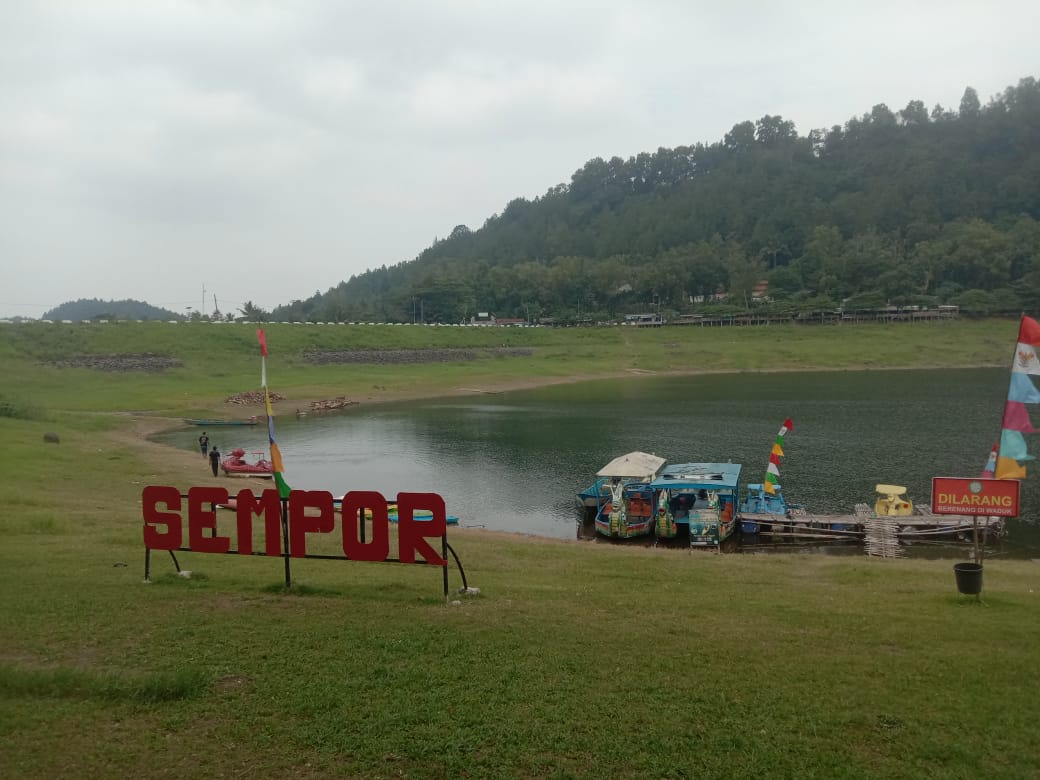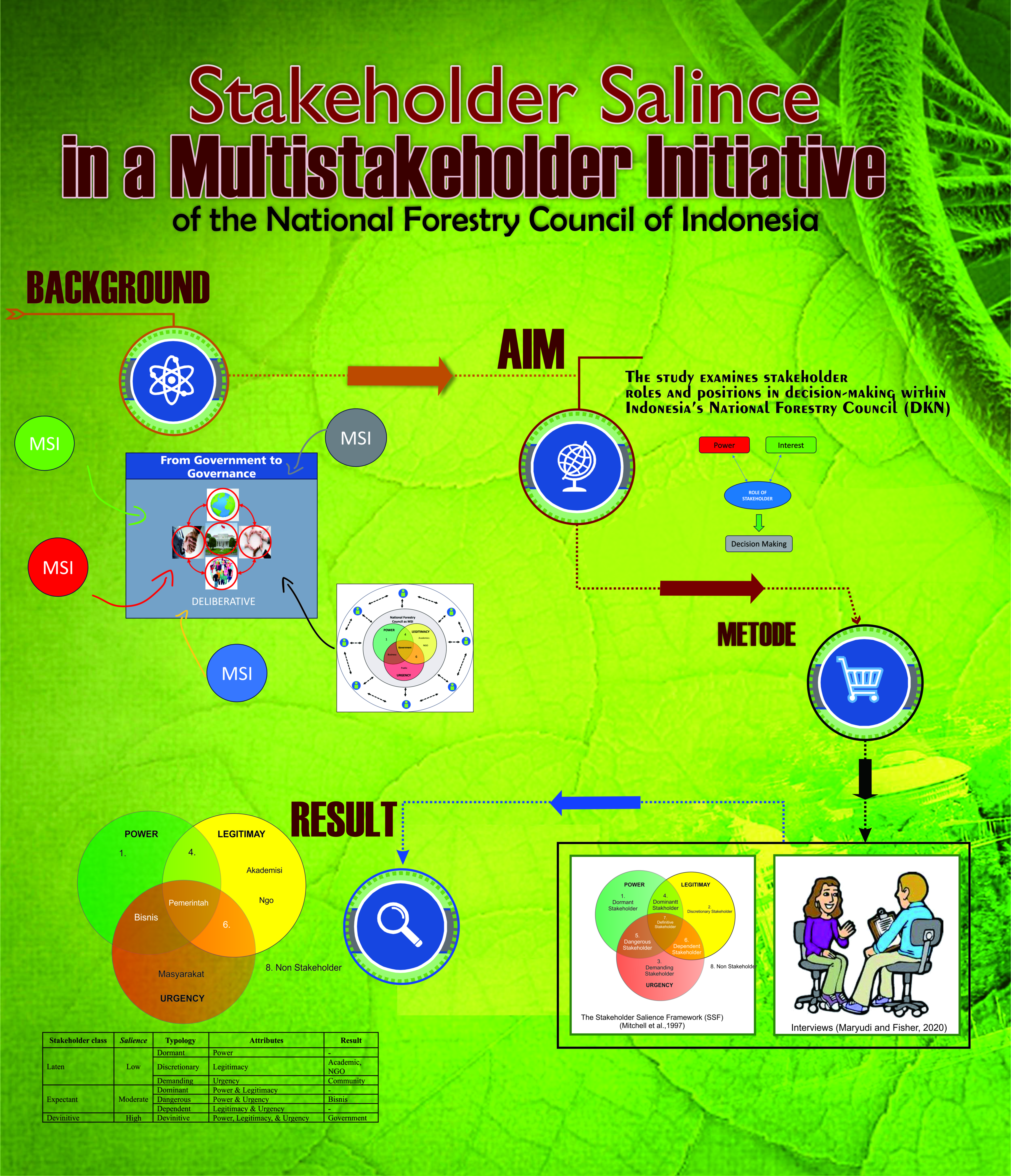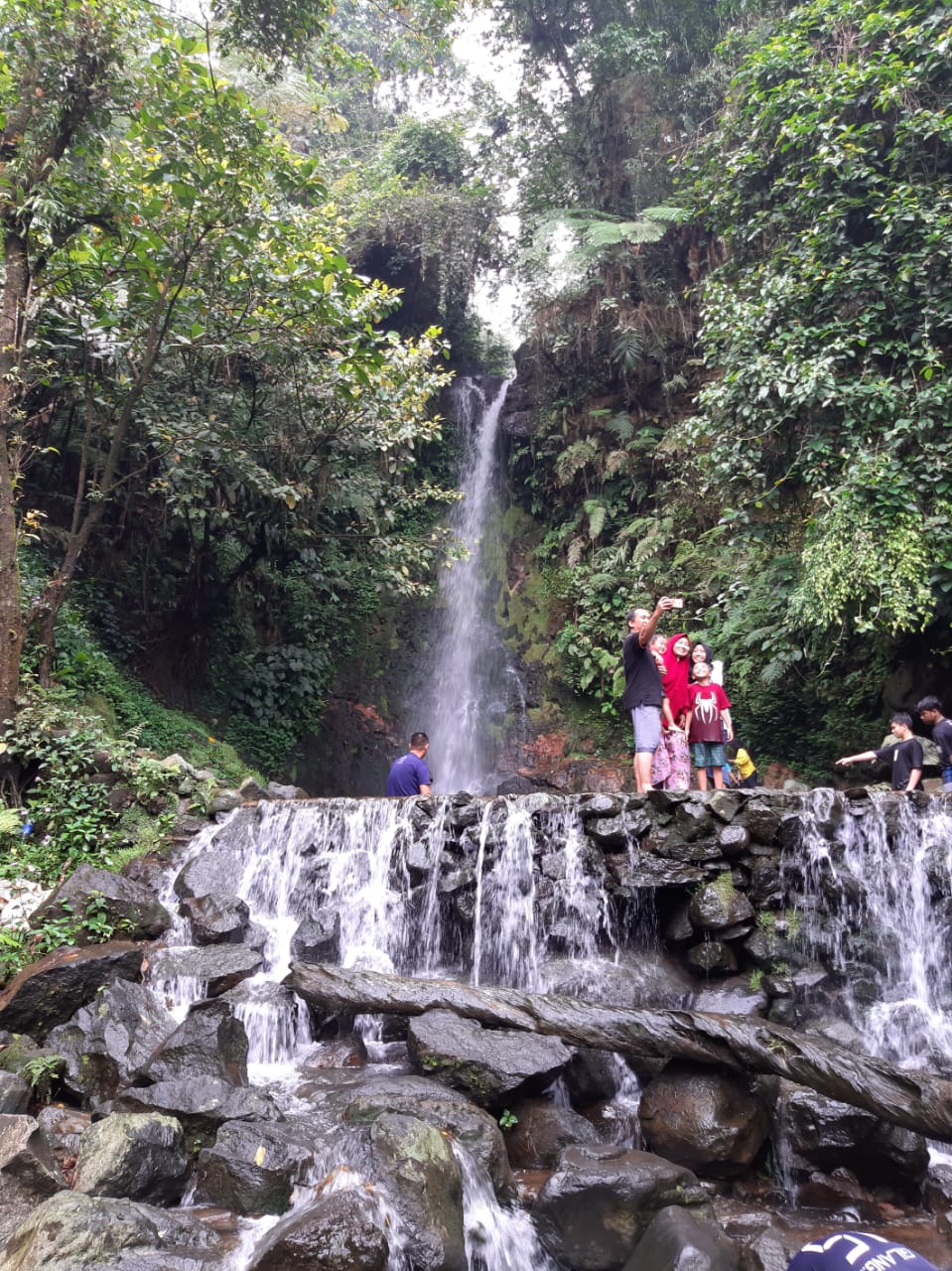Polarization of Stakeholder Orientation Towards Geotourism Development in the Mount Slamet and Serayu Mountainous Areas, Central Java Province
Abstract
The success of geotourism development is strongly influenced by the orientation (perceptions, motivations and preferences) of the stakeholders. An aim of the study was to analyze the polarization of stakeholder orientation towards geotourism development in the Mount Slamet and Serayu Mountainous areas, Central Java Province. Research instrument used a closed-ended questionnaire following the scoring pattern of "One Score One Indicator Scoring System”. The sample of respondents was 8 stakeholder groups with a total of 1,252 respondents. The characteristics of the stakeholder was analysed by quantitative descriptive, while the indication of the polarization of the stakeholder orientation was analyzed by using the one way Anova statistical test. Results indicated that the polarization of stakeholder orientation had a positive direction and scale of polarization was strong. This conditions showed that there is a gap in the value of stakeholder orientation which makes the performance of geotourism development less than optimal. It is necessary to improve the quality of collaboration and cooperation so that there is no polarization in the orientation between stakeholders to achieve the sustainable geotourism development.
References
Avenzora, R. (2008). Assessment of tourism object potential: Aspects and indicators of assessment. In Ecotourism: Theory and practice (pp. 241–278). BRR NAD-Nias.
Avenzora, R. (2018). Pengembangan pariwisata alam nasional di kawasan konservasi. Bogor: Program Studi Manajemen Ekowisata dan Jasa Lingkungan.
Boley, B. B., & Nickerson, N. P. (2013). Profiling geotravelers: An a priori segmentation identifying and defining sustainable travelers using the Geotraveler Tendency Scale (GTS). Journal of Sustainable Tourism, 21(2), 314–330. https://doi.org/10.1080/09669582.2012.692684
Crawford, K. R., & Black, R. (2012). Visitor understanding of the geodiversity and the geoconservation value of the Giant’s Causeway World Heritage Site, Northern Ireland. Geoheritage, 4(1–2), 115–126. https://doi.org/10.1007/s12371-011-0049-6
Czernek, K., & Czakon, W. (2016). Trust-building processes in tourist coopetition: The case of a Polish region. Tourism Management, 52, 380–394. https://doi.org/10.1016/j.tourman.2015.07.009
Damanik, J. (2013). Pariwisata Indonesia: Antara peluang dan tantangan. Yogyakarta: Pustaka Pelajar.
Dowling, R. K. (2014). Global geotourism-An emerging form of sustainable tourism. Czech Journal of Tourism, 2(2), 59–79. https://doi.org/10.2478/cjot-2013-0004
Dowling, R. K., & Newsome, D. (2017). Geotourism destinations-Visitor impacts and site management considerations. Czech Journal of Tourism, 6(2), 111–129. https://doi.org/10.1515/cjot-2017-0006
Dowling, R., & Pforr, C. (2021). Geotourism-A sustainable development option for Namibia. Journal of Ecotourism, 20(4), 371–385. https://doi.org/10.1080/14724049.2021.1910699
Farsani, N. T., Carvalho, C. N., & Xu, K. (2018). Education as a key tenet of geotourism. In R. Dowling, & D. Newsome (Eds.), Handbook of geotourism (pp. 234–243). Elgar Press.
Farsani, N. T., Coelho, C., & Costa, C. (2012). Geotourism and geoparks as gateways to socio-cultural sustainability in Qeshm rural areas, Iran. Asia Pacific Journal of Tourism Research, 17(1), 30–48. https://doi.org/10.1080/10941665.2011.610145
Farsani, N. T., Coelho, C. O. A., & Costa, C. M. M. (2013). Rural geotourism: A new tourism product. Acta Geoturistica, 4(2), 1–10.
Gordon, J. E. (2012). Rediscovering a sense of wonder: Geoheritage, geotourism and cultural landscape experiences. Geoheritage, 4(1–2), 65–77. https://doi.org/10.1007/s12371-011-0051-z
Graci, S. (2013). Collaboration and partnership development for sustainable tourism. Tourism Geographies: An International Journal of Tourism Space, Place and Environment, 15(1), 25–42. https://doi.org/10.1080/14616688.2012.675513
Graci, S., & Van Vliet, L. (2020). Examining stakeholder perceptions towards sustainable tourism in an island destination. the case of Savusavu, Fiji. Tourism Planning and Development, 17(1), 62–81. https://doi.org/10.1080/21568316.2019.1657933
Haribawa, P. A., Avenzora, R., & Arief, H. (2020). The polarization of orientation on cultural land utilization for ecotourism development amongst the local in Bali aga of Mount Lesung region. Jurnal Manajemen Hutan Tropika, 26(1), 21–33. https://doi.org/10.7226/jtfm.26.1.21
Hose, T. A. (2012). 3G’s for modern geotourism. Geoheritage, 4(1–2), 7–24. https://doi.org/10.1007/s12371-011-0052-y
Manulang, S. (2017). Teori dan teknik analisis stakeholder. Bogor: IPB Press.
Mokhtari, D., Roostaei, S., Khodadadi, M., Ahmadi, M., Ebrahimi, O., & Shahabi, H. (2019). Evaluation of the role of environmental education in Manesht and Ghelarang geotourism destination, Iran. Journal of Quality Assurance in Hospitality and Tourism, 20(6), 681–708. https://doi.org/10.1080/1528008X.2019.1616039
Newsome, D., & Dowling, R. K. (2006). The scope and nature of geotourism. In R. K. Downling, & D. Newsome (Eds.), Geotourism: Sustainability, impacts and management (pp. 3–25). Oxford; Burlington, MA: Elsevier Butterworth-Heinemann. https://doi.org/10.1016/B978-0-7506-6215-4.50009-9
Newsome, D., Dowling, R., & Leung, Y. F. (2012). The nature and management of geotourism: a case study of two established iconic geotourism destinations. Tourism Management Perspectives, 2–3, 19–27. https://doi.org/10.1016/j.tmp.2011.12.009
Newsome, D., & Johnson, C. P. (2013). Potential geotourism and the prospect of raising awareness about geoheritage and environment on Mauritius. Geoheritage, 5(1), 1–9. https://doi.org/10.1007/s12371-012-0070-4
Norrish, L., Sanders, D., & Dowling, R. (2014). Geotourism product development and stakeholder perceptions: A case study of a proposed geotrail in Perth, Western Australia. Journal of Ecotourism, 13(1), 52–63. https://doi.org/10.1080/14724049.2014.938654
Nyanjom, J., Boxall, K., & Slaven, J. (2018). Towards inclusive tourism? Stakeholder collaboration in the development of accessible tourism. Tourism Geographies An International Journal of Tourism Space, Place and Environment, 1–23. https://doi.org/10.1080/14616688.2018.1477828
Poudel, S., Nyaupane, G. P., & Budruk, M. (2014). Stakeholders’ perspectives of sustainable tourism development: A new approach to measuring outcomes. Journal of Travel Research, 1–16. https://doi.org/10.1177/0047287514563166
Randle, E. J., & Hoye, R. (2016). Stakeholder perception of regulating commercial tourism in Victorian National Parks, Australia. Tourism Management, 54, 138–149. https://doi.org/10.1016/j.tourman.2015.11.002
Stone, M. T. (2015). Community-based ecotourism: A collaborative partnerships perspective. Journal of Ecotourism, 14(2–3), 166–184. https://doi.org/10.1080/14724049.2015.1023309
Sungkar, A., & Brahmantyo, B. (2013). Eco-geotourism in Indonesia. In F. Teguh, & R. Avenzora (Eds.), Ecotourism and sustainable tourism development in Indonesia: Potential for learning and success (pp. 184–230). Jakarta: Gramedia Pustaka Utama.
Towner, N. (2018). Surfing tourism and local stakeholder collaboration. Journal of Ecotourism, 17(3), 268–286. https://doi.org/10.1080/14724049.2018.1503503
Untari, R., Avenzora, R., Darusman, D., & Sunarminto, T. (2019). Community responses to nature-based tourism promotion materials in Indonesia. Jurnal Manajemen Hutan Tropika, 25(1), 17–27. https://doi.org/10.7226/jtfm.5.1.17
Vrontis, D., Christofi, M., Giacosa, E., & Serravalle, F. (2021). Sustainable development in tourism: A stakeholder analysis of the Langhe Region. Journal of Hospitality and Tourism Research, 1–33. https://doi.org/10.1177/1096348020982353
Waayers, D., Lee, D., & Newsome, D. (2012). Exploring the nature of stakeholder collaboration: A case study of marine turtle tourism in the Ningaloo region, Western Australia. Current Issues in Tourism, 15(7), 673–692. https://doi.org/10.1080/13683500.2011.631697
Waligo, V. M., Clarke, J., & Hawkins, R. (2013). Implementing sustainable tourism: A multi-stakeholder involvement management framework. Tourism Management, 36, 342–353. https://doi.org/10.1016/j.tourman.2012.10.008
Walliss, J., & Kok, K. (2014). New interpretative strategies for geotourism: an exploration of two Australian mining sites. Journal of Tourism and Cultural Change, 12(1), 33–49. https://doi.org/10.1080/14766825.2013.868902
Wei, M., & Yang, R. (2013). A research on eco-tourism development models based on the stakeholder theory. Applied Mechanics and Materials, 291–294, 1447–1450. https://doi.org/10.4028/www.scientific.net/AMM.291-294.1447
Wondirad, A., Tolkach, D., & King, B. (2020). Stakeholder collaboration as a major factor for sustainable ecotourism development in developing countries. Tourism Management, 78, 104024. https://doi.org/10.1016/j.tourman.2019.104024









